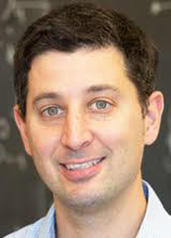Topics
- active learning (18)
- research assignments (6)
- libraries (1)
- literature-based learning (2)
- multimedia (5)
- museums (6)
- object learning (7)
- online learning (5)
- peer instruction (10)
- storytelling (2)
- learning management system (2)
- syllabus design (3)
- teaching empathy (3)
- teaching fellows (1)
- lecture (3)
- learning goals (8)
- assessment (6)
- data (3)
- backward design (3)
- blended approaches (12)
- case-based learning (8)
- classroom contracts (7)
- classrooms and space (3)
- collaborative learning (27)
- community events (1)
- course transformation (7)
- devices (3)
- learning by making (5)
- discussion (24)
- engaged scholarship (4)
- experiential learning (16)
- feedback (18)
- group work (8)
- guest speakers (7)
- interdisciplinary (6)
- leadership (3)
Send feedback
Subscribe
Copyright © 2024 The President and Fellows of Harvard College | Privacy | Accessibility | Digital Accessibility | Report Copyright Infringement

 Sheila Heen, Thaddeus R. Beal Professor of Practice and a Deputy Director of the Harvard Negotiation Project at Harvard Law School (HLS), specializes in navigating challenging negotiations where emotions, relationships, and legal components are on the line. Heen is responsible for and team-teaches in Harvard Law School’s three Negotiation Workshop courses, with enrollment of over 400 law students and cross-registrants annually. The workshops are a primary way that students meet the new HLS graduation requirement to take a course that teaches negotiation, relationship management, and leadership skills. Over the last 40 years, the Negotiation Workshop has developed a self-reflective and experiential pedagogy that challenges faculty to walk their own talk as they both teach and learn alongside students. In the classroom, Heen and her faculty colleagues encourage students to reflect on their learning experiences, understand their decision-making processes, and apply theoretical knowledge in practical contexts to enhance their negotiation skills.
Sheila Heen, Thaddeus R. Beal Professor of Practice and a Deputy Director of the Harvard Negotiation Project at Harvard Law School (HLS), specializes in navigating challenging negotiations where emotions, relationships, and legal components are on the line. Heen is responsible for and team-teaches in Harvard Law School’s three Negotiation Workshop courses, with enrollment of over 400 law students and cross-registrants annually. The workshops are a primary way that students meet the new HLS graduation requirement to take a course that teaches negotiation, relationship management, and leadership skills. Over the last 40 years, the Negotiation Workshop has developed a self-reflective and experiential pedagogy that challenges faculty to walk their own talk as they both teach and learn alongside students. In the classroom, Heen and her faculty colleagues encourage students to reflect on their learning experiences, understand their decision-making processes, and apply theoretical knowledge in practical contexts to enhance their negotiation skills.  Dr. Sang E. Park, Associate Professor of Restorative Dentistry and Biomaterials Sciences and Associate Dean for Dental Education, is committed to ensuring that dental education at Harvard School of Dental Medicine (HSDM) prepares students for careers as dental practitioners while meeting the needs of its patients. Dr. Park has been instrumental in several curriculum redesigns, including the introduction of the Case Completion clinical curriculum in 2009. The most recent efforts of the Curriculum Redesign Task Force for the class for 2027 included a restructuring of the preclinical and biomedical curriculum, a strengthening of research components, and engagement of the
Dr. Sang E. Park, Associate Professor of Restorative Dentistry and Biomaterials Sciences and Associate Dean for Dental Education, is committed to ensuring that dental education at Harvard School of Dental Medicine (HSDM) prepares students for careers as dental practitioners while meeting the needs of its patients. Dr. Park has been instrumental in several curriculum redesigns, including the introduction of the Case Completion clinical curriculum in 2009. The most recent efforts of the Curriculum Redesign Task Force for the class for 2027 included a restructuring of the preclinical and biomedical curriculum, a strengthening of research components, and engagement of the  Vijay Janapa Reddi, Associate Professor (SEAS) and director of the Edge Computing Lab, is an applied machine learning computer architect. As a scholar with deep knowledge of how artificial intelligence (AI) works, Janapa Reddi offers a unique perspective on both the challenges and opportunities generative AI presents. Generative AI platforms, such as ChatGPT, are changing how students interact with course material and setting new standards for the skills necessary for future professional fields. While Janapa Reddi is cautious about implementing exercises that leverage such platforms in his
Vijay Janapa Reddi, Associate Professor (SEAS) and director of the Edge Computing Lab, is an applied machine learning computer architect. As a scholar with deep knowledge of how artificial intelligence (AI) works, Janapa Reddi offers a unique perspective on both the challenges and opportunities generative AI presents. Generative AI platforms, such as ChatGPT, are changing how students interact with course material and setting new standards for the skills necessary for future professional fields. While Janapa Reddi is cautious about implementing exercises that leverage such platforms in his  In his
In his